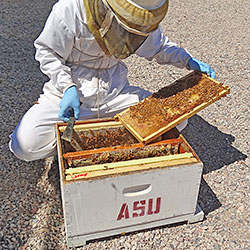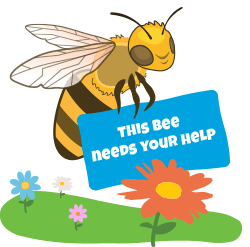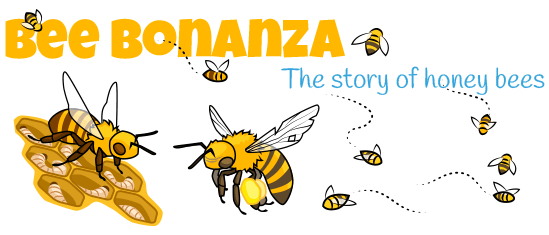Why Are Bees Disappearing?
Bees are amazing. They have their own language and they do so much for the ecosystem. Many native plants—which grow in your area—and crops you depend on for food require bees for pollination.

Recently, beekeepers in the United States and Europe have become concerned about an unusual loss of bee colonies. Scientists have since discovered several factors related to modern beekeeping that contribute to this phenomenon. Ultimately, it is not one thing but a combination that are impacting bee survival.
- For the first time in the history of the evolution of bees, people are keeping them in tremendous numbers and mixing them by moving huge truckloads of bee hives every year to pollinate large areas of crops in places like California. Sometimes bees have to spend 2-3 days locked inside their hives while being driven across the country. This can be very stressful for the colony.
- This mixing of bees that result from these mass pollination efforts increases the bees’ exposure to both diseases and parasites, like the varroa mite. We can take vaccines to prevent spreading diseases, but bees do not.
- Long term exposures to some pesticides that persist in the environment or to antibiotics given to the bees to try to help them have been shown to impact honey bee health.
Ultimately, honey bees will probably be ok. We likely are not in danger of losing our favorite pollinator altogether, but we are in danger of losing some of their more rare cousins. Bumblebees and other native bees have been shown to be much more susceptible to both the diseases and pesticides impacting honey bees. So we all need to do our part to protect our local bees.

How Can You Help the Bees?
Plant flowering plants in your gardens that are native to the part of the world you live. This is not only better for the bees but also better for the ecosystem.
Don’t spray pesticides or insecticides. If you do have to spray pesticides or insecticides, spray them at night when bees won’t be visiting your garden.
Contact your local entomologists and learn more about the native bees in your area. You can plant flowers they love or build structures to encourage them to nest in your garden. For example, orchid bees love native orchids and carpenter bees love soft wooden logs and branches to nest in.
Read more about: Bee Bonanza
Bibliographic details:
- Article: Why Are Honey Bees Disappearing?
- Author(s): Dr. Biology
- Publisher: Arizona State University School of Life Sciences Ask A Biologist
- Site name: ASU - Ask A Biologist
- Date published:
- Date accessed:
- Link: https://askabiologist.asu.edu/honey-bees-disappearing
APA Style
Dr. Biology. (). Why Are Honey Bees Disappearing?. ASU - Ask A Biologist. Retrieved from https://askabiologist.asu.edu/honey-bees-disappearing
Chicago Manual of Style
Dr. Biology. "Why Are Honey Bees Disappearing?". ASU - Ask A Biologist. . https://askabiologist.asu.edu/honey-bees-disappearing
Dr. Biology. "Why Are Honey Bees Disappearing?". ASU - Ask A Biologist. . ASU - Ask A Biologist, Web. https://askabiologist.asu.edu/honey-bees-disappearing
MLA 2017 Style

Are honey bees disappearing?
Be Part of
Ask A Biologist
By volunteering, or simply sending us feedback on the site. Scientists, teachers, writers, illustrators, and translators are all important to the program. If you are interested in helping with the website we have a Volunteers page to get the process started.

